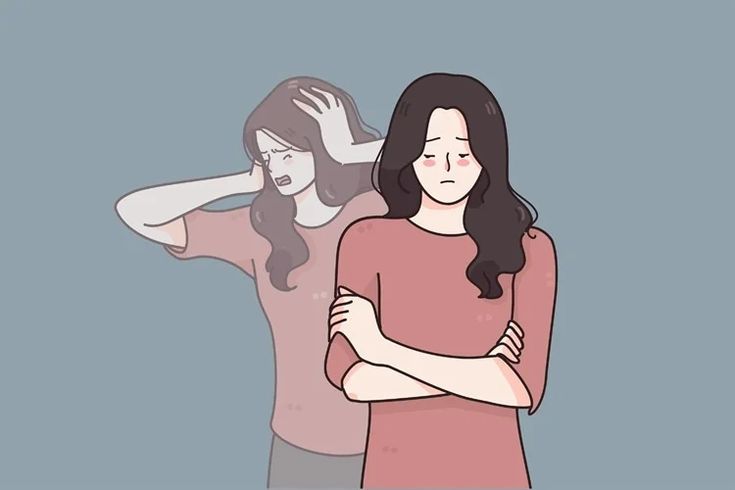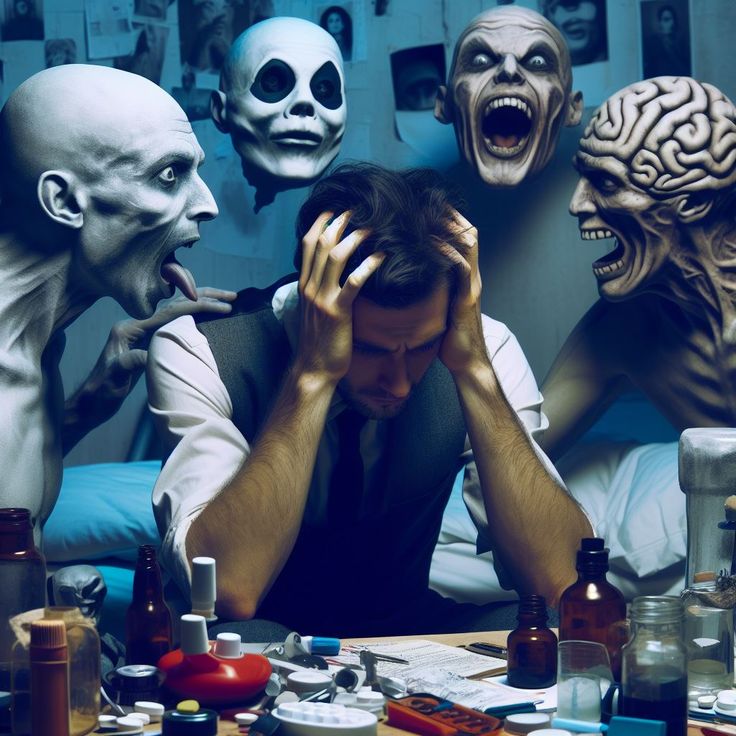
Schizophrenia is a psychiatric disease that mostly starts in late teenage years or early adulthood. It changes the thought process, feeling, and action of an individual. Moreover, it also makes daily activities and socialization more difficult. Schizophrenia is a pretty rare disease. About 0.25% to 0.64% of the U.S. population suffers from this disease.
It might be very serious interruptions in anyone’s life along with that the lives of surrounding people. Although schizophrenia is an untreatable condition but that is life- long; still, its symptoms can be effectively controlled with a proper treatment regime. This guide will help differentiate between any modality of therapy for schizophrenia regarding causes, signs, and dissimilarities.
At what age does Schizophrenia usually start?
Symptoms of schizophrenia typically start in the late teens or early 30s. In general, the symptoms start earlier in men than in women. Some may show weird characteristics when young, but these seem to be more pronounced as they age. For others, the symptoms can appear suddenly without warning.
Understanding when schizophrenia starts can help with early treatment. Learn more about the common ages when schizophrenia symptoms first appear.
Types of Schizophrenia
Over time, the way healthcare experts classify this disease has changed. In the past, they used to group it into five types:
- Paranoid
- Disorganized
- Catatonic
- Undifferentiated
- Residual
But now, doctors no longer use these categories. It was reported that these types had numerous similar symptoms, which greatly made them difficult to distinguish. The doctors of the modern era use a guide referred to as DSM-5-TR, which stands for Diagnostic and Statistical Manual of Mental Disorders, 5th edition, text revision.
It is within this guide that the different kinds of schizophrenia that previously existed have now been collapsed and combined together as the manual considers the symptom and how each case presents its case.
Symptoms of Schizophrenia

This condistion affects people in different ways, but some common signs include:
- Talking in a way that is clear but hard for others to understand
- Showing little or no facial expressions
- Not showing much emotion
- Feeling unmotivated
- Having trouble focusing
- Seeing or believing things that aren’t real (hallucinations and delusions)
Before these symptoms appear, a person might:
- Seem different from their usual self
- Feel nervous or uneasy
- Have trouble paying attention
The next sections will explain these symptoms in more detail.
Delusions
When a person has delusions, they strongly believe something even if there is no proof.
For example, they might think:
- They are extremely important.
- Someone is chasing or watching them.
- Others are trying to control them from far away.
- They have special powers or abilities.
Hallucinations
Hallucinations occur in many people with this condition. Most often, people can hear voices, but all of the senses can be involved. Other experiences include seeing, feeling, tasting, or smelling things that do not exist.
Confused Thinking and Speech
The thoughts and words jump from idea to idea without having a meaning and this can be really confusing for others to figure out what he or she is trying to say.
They may also be unable to remember things or to use and understand information.
What Causes Schizophrenia?
Doctors are not sure exactly what causes schizophrenia, but they believe it happens because of a mix of different reasons. These may include:
- Genetics – Schizophrenia can run in families. If a close family member has it, there is a higher chance of getting it.
- Brain Chemistry – Some people with this disease may have problems with certain chemicals in the brain that affect thoughts and feelings.
- Environment – Stress, trauma, or infections during pregnancy may increase the risk.
- Life Experiences – Trouble such as losing a family member, living in a stressful home while growing up, or using drugs can.
Scientists are still researching this rare condition to try to understand what causes it.
Treatment for Schizophrenia
Schizophrenia lasts a lifetime, but the right treatment can help control symptoms, stop relapses, and keep a person out of the hospital.
Everyone’s experience is different, so doctors create a treatment plan that works best for each person. Some common treatments include:
- Medicine (Antipsychotic Drugs) – These help control symptoms. Some people take pills every day, while others get an injection that lasts up to six months.
- Therapy (Counseling) – Talking to a mental health professional can help people learn coping skills and work toward their life goals.
- Complete Care Plan – This includes medicine, support from family, and education to help the person manage their condition in a healthy way.
Medicines for Schizophrenia

Healthcare experts use antipsychotic medicines to help treat schizophrenia. Some common ones include:
- Risperidone (Risperdal)
- Olanzapine (Zyprexa)
- Quetiapine (Seroquel)
- Ziprasidone (Geodon)
- Clozapine (Clozaril)
- Haloperidol (Haldol)
These medicines can help control symptoms, but they may also cause side effects like feeling sleepy or gaining weight.
It’s very important to keep taking the medicine, even if a person starts feeling better. If they stop, the symptoms could come back.
Conclusion
Schizophrenia is a chronic disease, and it can lead to a significant problem for that person in going about their everyday life. Moreover, it might influence other persons around them because of their inability to perform.
There is medical intervention that may control the disorder and its various symptoms. Relatives and friends with family and support services within communities are very much important for an individual suffering from schizophrenia.
If you care for someone with schizophrenia, you can help him by understanding how to detect signs when an attack is about to happen. Be supportive of his following through with their treatment plan as he experiences it.
FAQs (Frequently Asked Questions)
What is schizophrenia?
Schizophrenia is a long-term mental illness that affects how a person thinks, feels, and acts. It can make daily life and social interactions difficult.
At what age does this condition usually start?
Its symptoms typically begin in the late teens or early 30s. Men often show symptoms earlier than women.
What causes schizophrenia?
The precise cause is unknown, but the illness might be caused by a combination of genetic, brain chemistry, environmental, and life experience variables.
Is schizophrenia curable?
No, it is a lifelong disease, but it can be handled and the quality of life may be improved through proper treatment.
Can this disease be managed without medication?
Generally, the treatment may require medication for all symptoms, but therapy, support from family, and other lifestyle changes also help.

